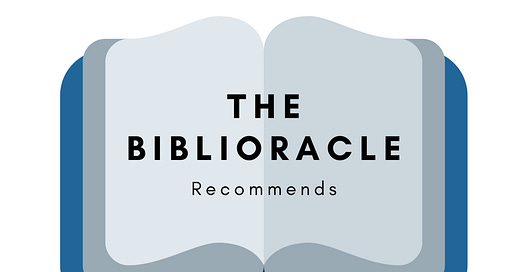This week’s column is a reflection on how so much of what I “knew” about world history was based in the narrative fiction of the 60’s and 70’s, authors like Leon Uris, James Michener, James Clavell, all who wrote epics about particular places and eras that I figured must be definitive, because how would I know otherwise?
These are the books that populated my family’s bookshelves when I was growing up and when I wanted to learn something new, I would pull one down and read it and learn something new.
Books are no longer required for this purpose, of course, and yet I’m imagining most of you reading this keep a lot of books around the house, most of them books you’ve already read - and here’s the interesting part - books you will likely never read, maybe never even look at again.
What’s up with that? Why do so many of us just like to keep books around as background companions? Sure, I tell myself that maybe someday I’ll want to look at something again, but for the vast majority of books in my house, the only time I touch them is when I have to pack them for a move. There is no actual utility for any of these books, other than as decoration, and to be quite frank, I have too many books on my shelves for them to be decorative.
I’m not a compulsive book hoarder - I give away and donate hundreds of books a year - but the thought of stripping my house of books, even ones that I know I’m never going to look at again, fills me with horror.
Any thoughts, fellow readers? Why do you keep books around?
Links
Hanya Yanigahara, author of A Little Life has a new book coming out early 2022.
The Tournament of Books is planning their summer reading club, Camp ToB. If you’re looking for the smartest and most vibrant book talk around, check it out. Right now you can vote for which books are going to be selected.
Republican politicians guarantee bestsellerdom by passing bulk purchases through campaign committees. I’m now considering a career change.
Reading Companion of the Week
Meet Maya, with a favorite toy. Send your favorite reading companion to me at biblioracle@substack.com.
Recommendations
All links to books on these posts go to The Biblioracle Recommends bookshop at Bookshop.org. Affiliate income for purchases through the bookshop goes to Open Books in Chicago.
I’m genuinely low on recommendation requests, so if you’re looking for a relatively quick turnaround, follow the instructions in the link below:
1. The Mountains Wild by Sarah Stewart Taylor
2. The Boy in the Field by Margot Livesey
3. We Keep the Dead Close by Becky Cooper
4. Lord of All the Dead by Javier Cercas
5. Child of Light by Madison Smartt Bell
Kevin B. - Oak Park, IL
My recommendation is an all-time classic, so there’s a good chance that Kevin has read it, but if he hasn’t, it’s a hole that must be filled, In Cold Blood by Truman Capote.
1. The Body: A Guide for Occupants by Bill Bryson
2. Harpo Speaks by Harpo Marx and Rowland Barber
3. American Colossus by H.W. Brands
4. Wandering in Strange Lands by Morgan Jerkins
5. Born a Crime by Trevor Noah
Julie D. - Aurora, IL
I guess I’m in the mood for classics this week because for Julie I’m pulling out another book I think everyone should find the time to read, The Autobiography of Malcolm X by Alex Haley.
1. The Boy in the Field by Margot Livesy
2. Hidden Valley Road by Robert Kolker
3. Blue Highways by William Least Heat-Moon
4. Death Comes for the Archbishop by Willa Cather
5. The Color of Water by James McBride
Eloise P. - Glen Ellyn, IL
Eloise seems drawn to books that mix history and culture, and since she’s a Chicago area resident, I’m hoping she’ll be interested in Thomas Dyja’s history of the modern city, The Third Coast: When Chicago Built the American Dream.
Have a wonderful week,
John





I think the books on our shelves evoke memories of where we were, who we were, and how we felt when we read a particular book. I also (and am somewhat embarrassed to admit this) judge visitors to my home based on how they respond to our bookshelves. Do they look stunned and horrified? If so, probably not a good fit for us. Do they peruse them and comment? Perhaps a potential new friendship and fellow reader is in the house. Do they share memories of having read the same book or exclaim when they find a favorite? Then a guaranteed invite to return and discuss books is imminent.
My teaching books are a record of who I was, my travel books reflect some of the places I have visited and loved, and my books about the natural world reflect some of my passions. Then there are many others. My books are a small snapshot of who I am. To give them away might be like losing a piece of the essence of me. Although, I do give some away, and I hereby vow to do that more often. They are also a kind of To Do list. Someday, when I am old and have no interest in traveling, biking, hiking, kayaking, or gardening, I may finish reading them.